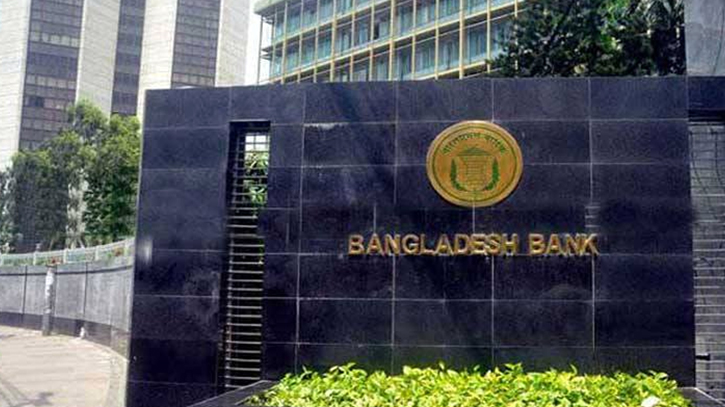
Photo : Collected
People in general are increasingly disengaging from investing in savings tools due to a variety of reasons including prevailing economic conditions and financial hardships.
The latest updated report from the country’s banking sector regulator Bangladesh Bank (BB) has revealed this.
Economists and experts are of the view that this trend is concerning as it signifies a reduced source of internal borrowing for the government. Consequently, the government is facing challenges in securing loans from domestic sectors, while also dealing with the obligation of repaying previous loans and accrued interests.
According to BB data, there was a notable shift in the net sales of savings certificates in December, with the amount showing a negative value of Tk 2204.32 crore. However, this contrasts with the trend observed in the first two months of the financial year, July and August, where investments in this sector experienced significant growth. In July, net sales amounted to Tk 3250 crore, followed by another substantial figure of Tk 2312.33 crore in August.
In September, the trend of negative net sales continued for the third consecutive month, with the government spending Tk 148 crore more than the amount generated from the sale of savings bonds.
Looking at the cumulative data for the first six months (July-December) of the financial year 2023-24, the net sales of savings bonds amounted to a negative Tk 6063 crore.
In simpler terms, over the past six months, the government has spent Tk 6063 crore more than the total amount generated from the sale of savings bonds. This deficit has been covered either by dipping into the government treasury or by borrowing from banks.
Ahsan H Mansur, executive director of the Policy Research Institute (PRI), a private research organisation, highlighted to The Daily Messenger that the decline in interest rates and the implementation of austerity measures have led to a decrease in the sale of savings bonds, which are considered a safe investment option for the general public. As a result, the net sales of savings bonds have turned negative. To compensate for this shortfall, the government has had to cover the interest and principal payments from its treasury.
Ahsan H Mansur also pointed out that the overall price levels in the market have escalated significantly, with inflation surpassing 9 percent. This rise in prices has led to increased costs across various sectors such as transportation, education, and healthcare. As a result, people's capacity to save has diminished. This economic condition has directly impacted the sale of savings bonds.
Contrary to Ahsan H Mansur's perspective, a senior official from the central bank provided a different insight to The Daily Messenger. According to this official, the International Monetary Fund (IMF) has mandated that the government reduce its debt from savings bonds by one-fourth by 2026. This requirement aims to mitigate the government's expenditure on interest payments for savings bonds. Additionally, the government is also inclined towards avoiding loans at high interest rates. As a result, the government's priority has shifted towards repaying existing debts rather than acquiring new loans.
In economic terms, the net sales of savings bonds represent a form of debt or borrowing for the government. This is because the remaining amount after paying the interest to the genuine customers who have previously purchased savings bonds constitutes the net sales. This money is then deposited into the government treasury and utilised to implement various state programs. Consequently, the customers holding savings bonds are obligated to pay interest on their investments.
During the period from July to November of the current financial year, the government was unable to acquire any additional loans or borrowings from savings certificates.
In the main budget of the last financial year 2022-23, the government had initially set a target of borrowing 35 thousand crore taka from savings bonds to address the budget deficit. However, due to several factors including austerity measures, reductions in interest rates, and an uptick in inflation, there was a decrease in people's savings and a corresponding decline in sales of savings bonds. Consequently, the government faced challenges in meeting its desired borrowing target from this sector.
As a result of the subdued performance in savings bonds sales, the revised budget adjusted the borrowing target significantly downwards to Tk 2000 crore.
At the close of the financial year, the government did not secure any loans from savings certificates. Instead, it incurred a net outgoing expenditure of Tk 6,063 crore from the exchequer or through borrowing from the banking system. These funds were utilised for the repayment of interest and principal amounts, as well as for the redemption of savings bonds that had been sold earlier.
Analysis of the data in the last five financial years shows that the government took a net loan of Tk 46530 crores from savings bonds in the financial year 2017-18. In the next financial year (2018-19), the net debt increased to Tk 49939 crore. And in the fiscal year 2019-20, the government took a net loan of Tk 14,428 crore from savings bonds. In the 2020-21 fiscal year the government took Tk 41960 crore. In 2021-22 fiscal year, the government took a net loan of Tk 19916 crore from savings bonds.
Depository receipts are now subject to certain conditions. It has become mandatory to obtain a certificate of return for investments in savings bonds exceeding 5 lakh taka. Additionally, starting from September 21 last year, the government has reduced the interest rate of all types of savings certificates by 2 percent for investments exceeding 15 lakh taka.
In December 2020, the investment limit for savings bonds was decreased. Moreover, the withholding tax rate on profits was raised from 5 percent to 10 percent effective from July 1, 2019. To prevent corruption or the acquisition of savings certificates with black money, a customer information database has been established.
Presently, there are four types of savings certificates available.
The interest rates for various savings bonds stand as follows: 11.52 percent for the five-year family savings bond, 11.76 percent for the five-year pensioner savings bond, 11.28 percent for the five-year profit-based savings bond, and 11.4 percent for the three-year and three-month profit-based savings bond. Despite undergoing reductions in interest rates through several rounds, savings bonds continue to offer higher returns compared to those provided by banks.
Bangladesh is currently grappling with an economic crisis exacerbated by the global financial downturn that commenced in 2022. Managing inflation has emerged as the government's foremost challenge, particularly over the past year. Consequently, despite facing financial difficulties, the government has refrained from borrowing from the central bank. Furthermore, the government has also curtailed the sale of savings certificates in response to these economic pressures.
Messenger/Fameema








